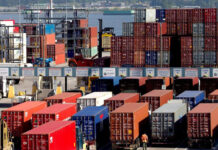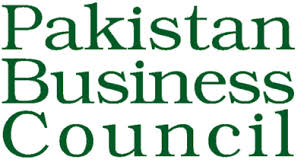ISLAMABAD
Competitive energy costs for exporters, renegotiation of FTAs with China, meticulous pursuit of FTAs with Thailand and Turkey, and withdrawal of “Full and Final” tax regime for commercial importers are the ways forward for job creation, value added exports/imports and better tax management according to Pakistan Business Council. This was said by a delegation of PBC members in a meeting with Prime Minister Shahid Khaqan Abbasi.
PBC presented a comprehensive explanation of the problems faced by the country’s trade, exchange rate and exports sectors. The delegation also came up with certain proposals top counter these problems, in a ‘Priority Pakistan approach’ presentation.
PBC noted that the GDP Growth is highest in the country in the past eight years, at 5.7 per cent, but the current account remains “fragile.”
The country’s exports are lowest in the past six years and the current account deficit has increased from $3.9 billion in 2016 to $13.3 billion in 2017. The presentation said, “Pakistan will require assistance.” It is notable that this suggestion comes very soon after the government hailed the completion of IMF’s recent bailout package, as the stage after which Pakistan will not need any financial or economic assistance, not anytime soon at least.
Drawing comparison with the regional players, PBC pointed out that Pakistan is losing its share in the world exports. In 1998 Pakistan composed 0.16 per cent of the world exports which has come down to 0.13 per cent in 2016.
At the same time, Bangladesh’s share in world exports has gone from 0.10 per cent in 1998 to 0.24 per cent in 2016, while Vietnam’s share has increased from 0.17 per cent to 1.35 per cent in the same time period.
The government’s tax collection has been short of target as well, while the government’s revenue is also “15.5 per cent lower than most peers.” The fiscal deficit is also expected to be higher at 4.7 per cent than the target rate of 3.8 per cent for the fiscal year 2017. To make matters worse, government debt has also reached 75.4 per cent, way higher than the median 52.8 per cent for B rated countries. This makes Pakistan vulnerable to rate hikes and makes governments dependent on short term debts and forex borrowing. The presentation also pointed out that one fourth of export earnings go to servicing debt.
At the same time, PBC also said that the corporate taxation and GST in Pakistan is much higher than the global average. Drawing comparisons with countries Singapore, Sri Lanka, Bangladesh and Vietnam, the delegation members said that “Shareholders of companies suffer effective tax rate of 47 per cent. Those of holding companies suffer 55 per cent ETR.” Furthermore, they added that manufacturing bears 58 per cent of the tax burden, while the taxation system is overly complicated due to 47 types of levies.
The presentation also mentioned that Pakistan is showing signs of premature deindustrialization. According to PBC’s research local store marketing (LSM) is increasing while the manufacturing share has gone down. This movement from manufacturing to trading is not only jeopardizing the already low rate of employment but is also putting further strain on the contribution of value addition in the country’s economy. PBC’s officials pointed out that Pakistan has also failed to capitalize on the majority of its free trade agreements with countries like Malaysia and Indonesia.
Quoting the presentation, “PKR/US$ exchange rate is unchanged since Jan 2016 vs historic adjustment of 5 per cent per annum in last 20 years. Risk adjusted Interest rate differential and the difference in inflation rates would suggest a correction of 7-8 per cent now.”
Keeping in line with the proposals made earlier this year by APTMA – and rejected by the government – PBC also advocated making energy costs competitive with the regional players. The presentation said that the gas and labour costs are 1.9 times and 2 times higher in Pakistan respectively. The delegation shared dissatisfaction at the uncertainty about when the prices will become competitive.
Proposing solutions to the above-mentioned problems, PBC advocated that policy interventions should be made to ensure that the tax regime promotes capital formation and consolidation, energy is offered to exporters at a competitive cost, FTAs are renegotiated and exchange rate tool is used selectively to create competitiveness. The delegation also proposed the creation of a National Tariff Commission and giving benefit of doubt to locally produced goods.

























